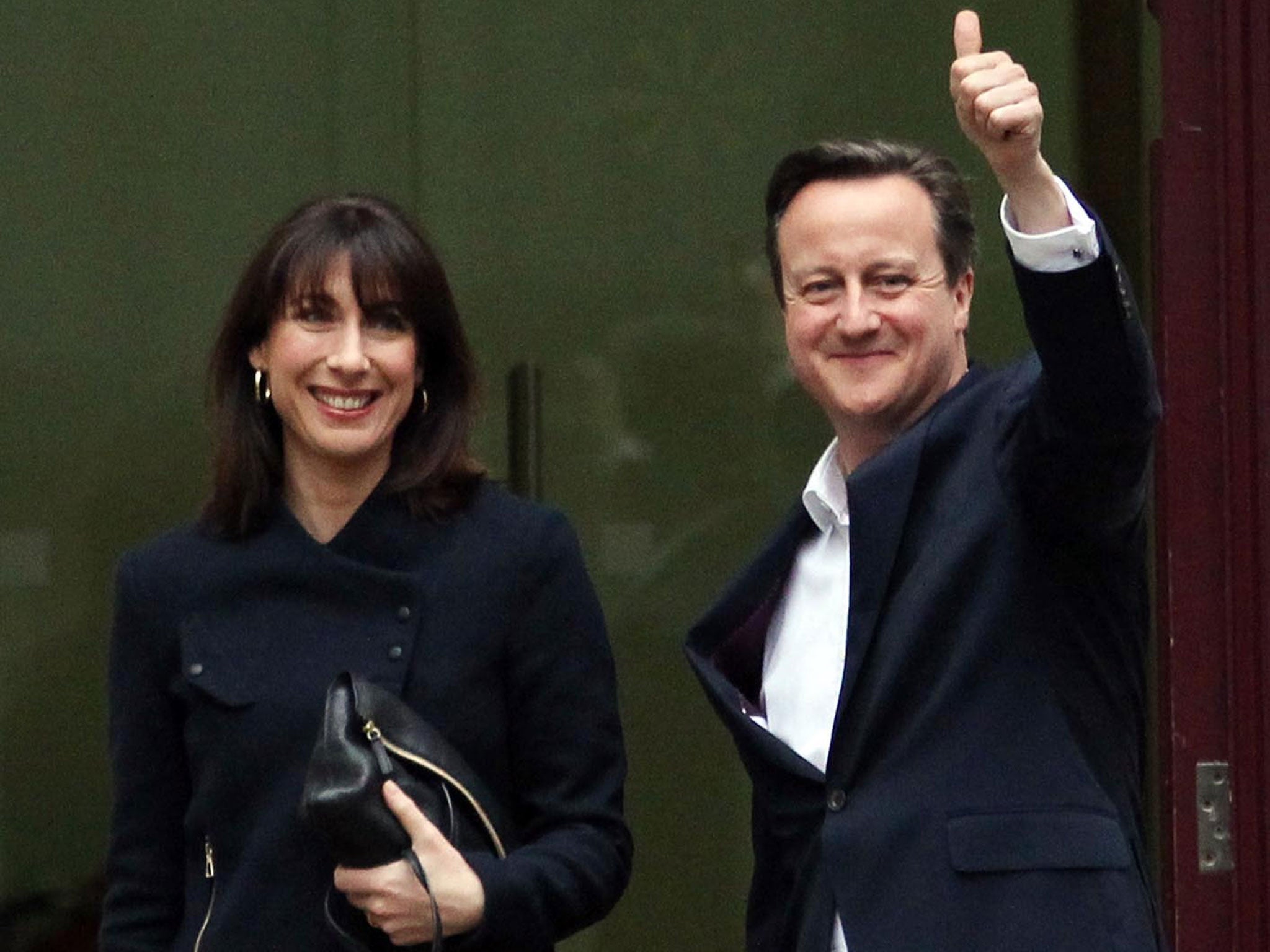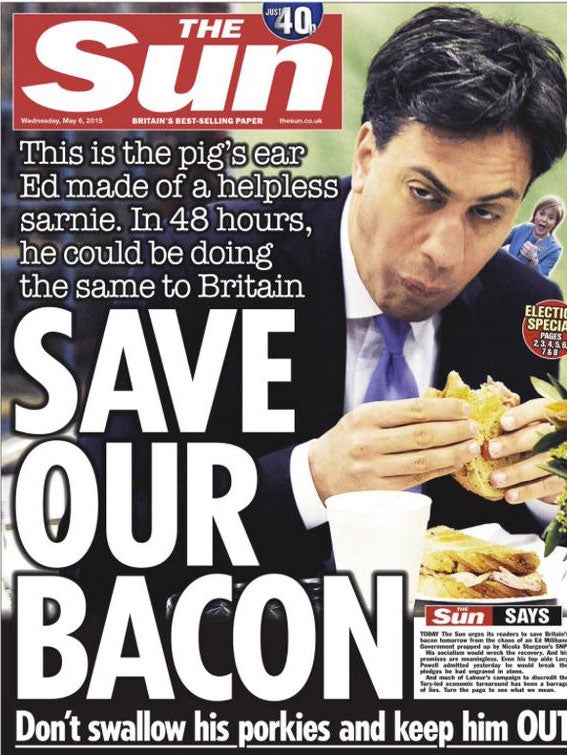UK election results: Was it 'The Sun wot won it' for David Cameron?
With polls suggesting a Labour administration propped up by the SNP, Tory-leaning papers subjected Miliband to an unprecedented level of scorn

Your support helps us to tell the story
From reproductive rights to climate change to Big Tech, The Independent is on the ground when the story is developing. Whether it's investigating the financials of Elon Musk's pro-Trump PAC or producing our latest documentary, 'The A Word', which shines a light on the American women fighting for reproductive rights, we know how important it is to parse out the facts from the messaging.
At such a critical moment in US history, we need reporters on the ground. Your donation allows us to keep sending journalists to speak to both sides of the story.
The Independent is trusted by Americans across the entire political spectrum. And unlike many other quality news outlets, we choose not to lock Americans out of our reporting and analysis with paywalls. We believe quality journalism should be available to everyone, paid for by those who can afford it.
Your support makes all the difference.As if election night didn’t already look like a rerun of 1992, Lord Kinnock took to the airwaves to accuse the right-wing press of thwarting Labour through a sustained campaign of abuse aimed at Ed Miliband.
So was it “The Sun wot won it” again, in a repeat of the paper’s famous claim to have swung the 1992 campaign for John Major?
With the polls suggesting a Labour administration propped up by the SNP in the days before the vote, Conservative-leaning papers subjected Mr Miliband to an unprecedented level of scorn.
The Sun splashed with the unflattering picture of Mr Miliband eating a bacon sandwich, telling readers that within 48 hours he could make a “pig’s ear” of running Britain. A useful guide to “Labour’s lies” filled pages two and three.

Research by the Media Standards Trust found that 95% of the leader columns in Rupert Murdoch’s tabloid were anti-Labour ahead of Thursday’s vote, compared with 79% that were judged anti-Labour in 1992.
Mr Murdoch personally instructed The Sun to turn the heat up against Mr Miliband, telling editors that the very future of News Corp depended upon the result. Labour would have introduced laws to break up media companies which it considered too powerful.
A commitment to back up the Leveson press regulation recommendations by statute was also a red line for a number of newspaper groups which consider any legislation a threat to free speech.
Lord Rothermere could hardly have welcomed Labour’s promise to end the non-dom status from which he benefits.
“This time Ed Miliband has been subject to a campaign of vilification which must make even Neil Kinnock feel he got off lightly,” said Alastair Campbell, the former Labour spin doctor.
A Miliband victory would have been secured “without courting or needing the support of the vicious, self-serving, nasty, deeply un-British right wing media.”
The response on social media suggested the “hysterical” papers had over-reached themselves ahead of polling day. “You don’t get to tell us what to do anymore, Mr Murdoch,” was a common reaction on Twitter. The Sun, which likes to back a winner, endorsed the SNP in Scotland and the Tories in England, aware that the majority of its readership did not support either party.
But there may have been a more subtle impact of the press campaign in particular seats. The Mail implored readers to vote tactically to “keep out Red Ed” and showed how vulnerable MPs including Ed Balls could be ousted if Ukip voters lent their support to the Tories.
Dr Stephen Cushion, Senior Lecturer at the Cardiff University School of Journalism, Media and Cultural Studies, who has conducted an analysis of the campaign, said: “With many undecided voters ahead of election day, it could be that the character assassination of Ed Miliband’s leadership in the days prior to the election could have influenced people intending to vote Labour.”
“But interpreting direct press influence on voters is difficult. What research can tell us is that the Labour campaign – championing the NHS, offering an alternative approach to austerity – was not a prominent part of the mainstream media agenda.”
Labour’s core message was obscured by the newspapers focused so heavily on an SNP deal. “There were occasions when newspaper coverage shaped the wider media agenda, including the evening bulletins – still overwhelmingly the primary source of information for most voters," Dr Cushion said.
“It would appear the Conservatives won the election on their handling of the economy – the most prominent issue reported in TV news. In contrast, Labour’s biggest vote winner was the NHS, but the issue of health was not extensively covered on TV bulletins.”
Studies show that newspaper readers are unlikely to be influenced by displays of naked partisanship during an election week.
Much more salient would have been a general perception, gained over five years from a variety of media, that Ed Miliband did not convince as a potential Prime Minister and lacked a credible economic plan.
As Alastair Campbell says: “Is the press as powerful as once it was? The answer is no. Is social media more important? The answer is yes. But are either the deciding factors? No.”
Join our commenting forum
Join thought-provoking conversations, follow other Independent readers and see their replies
Comments